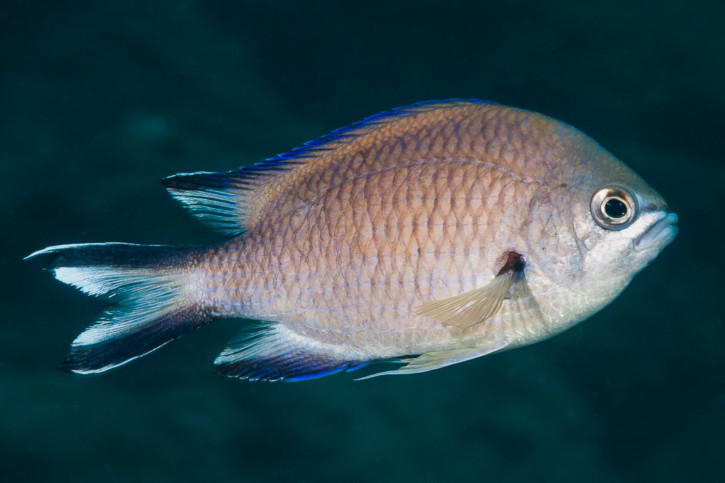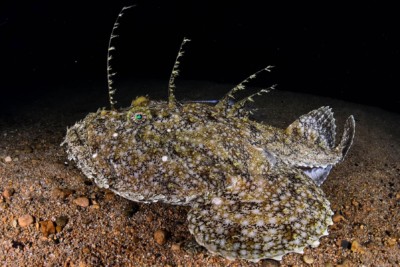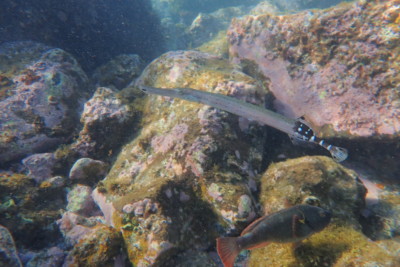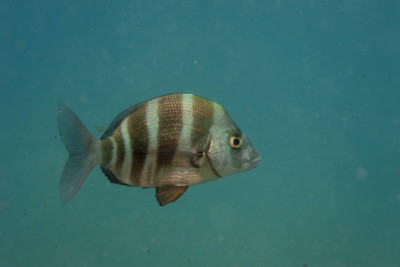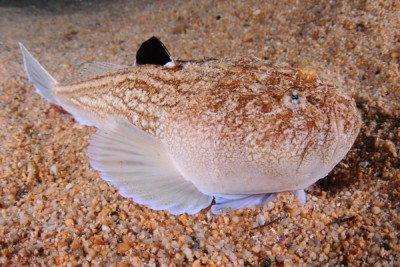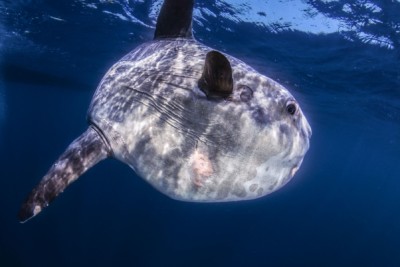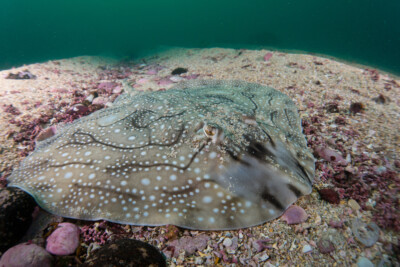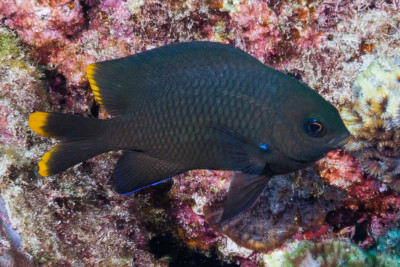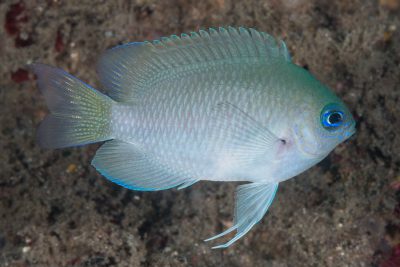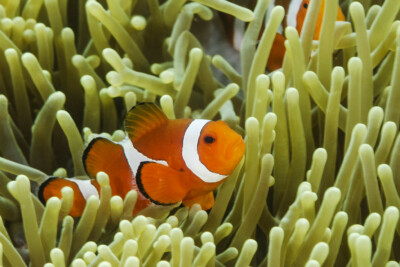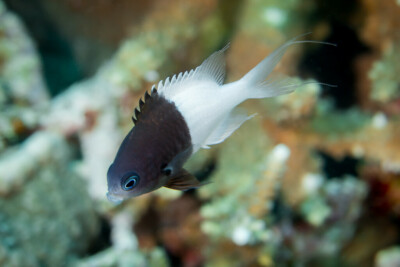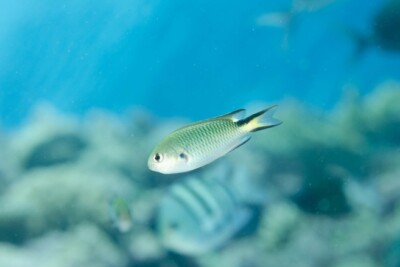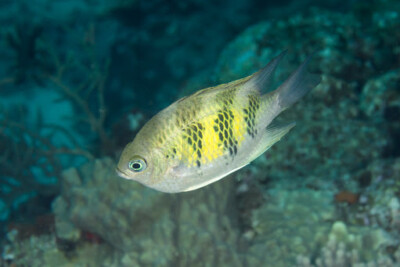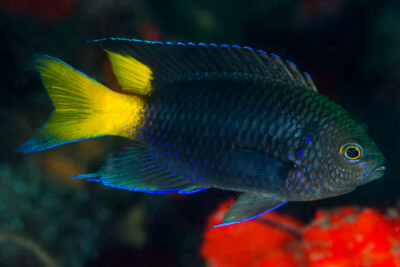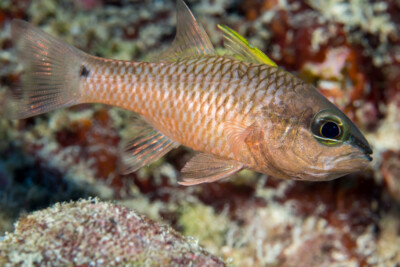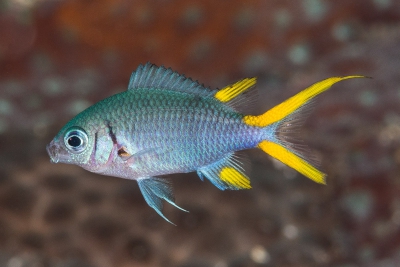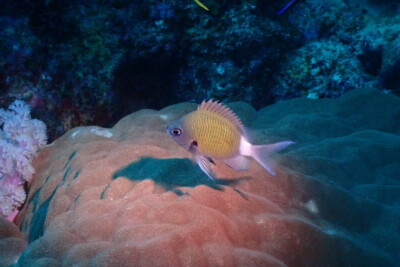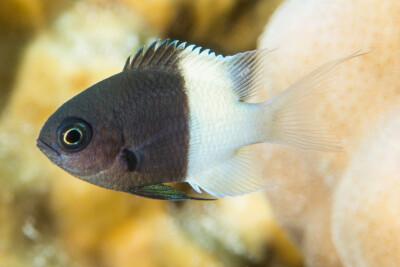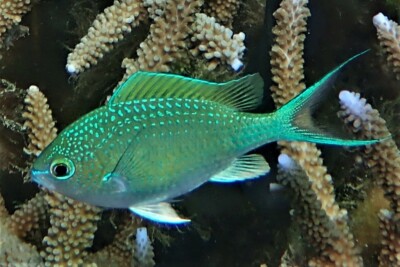azores chromis
| Scientific name | Chromis limbata |
|---|---|
| Descriptor | Valenciennes |
| Year of description | 1833 |
| IUCN category (World) | LC |
| Family | Pomacentridae |
| Genus | Chromis |
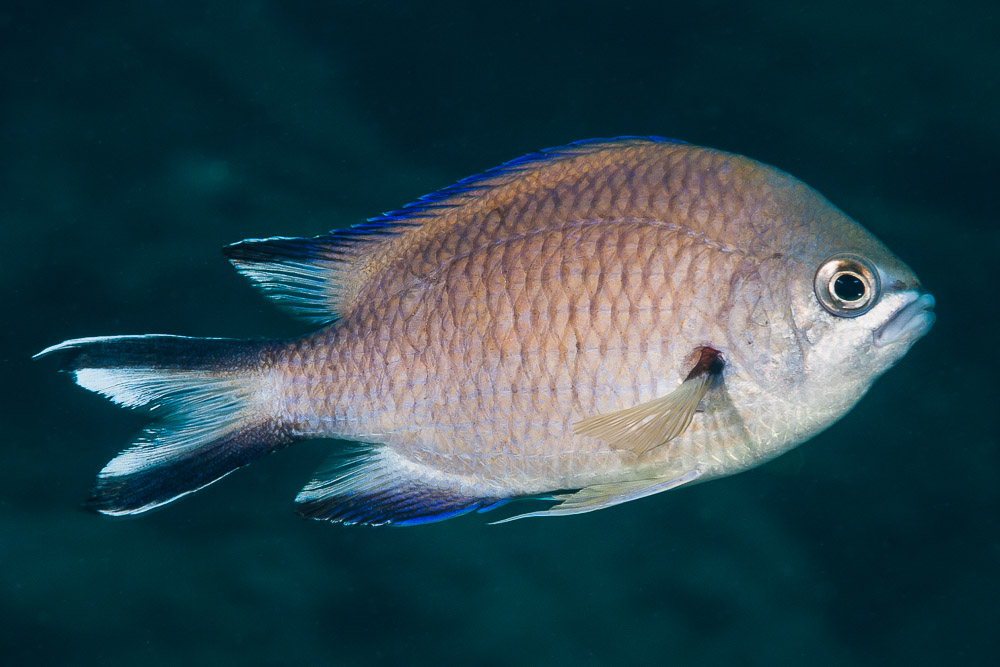

Introduction
Chromis limbata, commonly known as azores chromis, is a salt water fish from the Temperate Eastern Atlantic Ocean.
This sheet is currently being prepared. The texts currently proposed come from our data model or are being drafted. To request priority for this content, you can write to us HERE.
Who is it?
Morphology
-
Average size9 cm
-
Maximum size12 cm
-
Average size9 cm
-
Maximum size12 cm
How to recognize This fish ?
The azores chromis measures around 9 cm. The dominant males can however reach 12 cm. The azores chromis measures around 9 cm. The females are more imposing and some specimens can reach 12 cm. This fish is multicolore with a predominantly jaune, bleu, noir, violet and gris body.
Sexual dimorphism
The female is bigger than the male.The adult male is bigger than the female.
Behaviour & Life cycle
-
dietomnivorous with carnivorous tendency
-
Sociabilitygregarious
-
territorialYes
-
Way of livingdiurnal
The azores chromis is a fish gregarious naturally found near the bottom. This species is omnivorous with carnivorous tendency .
Reproduction
-
Reproductionovipare qui pond sur substrat caché
-
Hermaphroditeprotogynous
The azores chromis is a fish ovipare qui pond sur substrat caché. always born female. Growing up, individuals will change sex to become male, this is called successive hermaphroditism of the protogynous type. This fish protects its eggs from nearby predators.
Harmless species
This species does not represent any particular threats to humans when encountered in its natural environment.
Origin and distribution
Conservation status of populations (IUCN)
What is its habitat?
Natural environment characteristics
-
Temperature15 - 26 °C
-
Depth5 - 45 m
Biotope presentation
The azores chromis is most often found at a depth between 5m and 45m. However, it is not impossible to find this species at other depths.
Species of the same biotope
To go further
Sources & Contributions
Participation & Validation
The Fishipedia team and specialist contributors are committed to providing high-quality content. However, although the information comes from scientific sources or testimonials from specialists, the cards may contain inaccuracies.

Adrien Falzon
Translation
Translation done with the valuable contribution of our translators, who make this information available to a wider audience. We sincerely thank them for their commitment.
Bibliographic references
The recent colonization of south Brazil by the Azores chromis Chromis limbata - A. B. Anderson - E. M. Salas - L.A. Rocha - S. R. Floeter - WILEY - 2017.
Population expansion of the invasive Pomacentridae Chromis limbata (Valenciennes, 1833) in southern Brazilian coast: long-term monitoring, fundamental niche availability and new records - Antônio B. Anderson - Jodir Pereira da Silva - Raquel Sorvilo - Carlo Leopoldo B. Francini - SERGIO R. FLOETER - João P. Barreiros - WILEY - 2020.
Reproductive synchrony in a temperate damselfish,Chromis limbata - Betty J.L. Laglbauer - Pedro Afonso - Anick Donnay - Ricardo S. Santos - acta ethologica - 2016.
Scientific partners
Species of the same family
Same genus
Species of the same biotope
